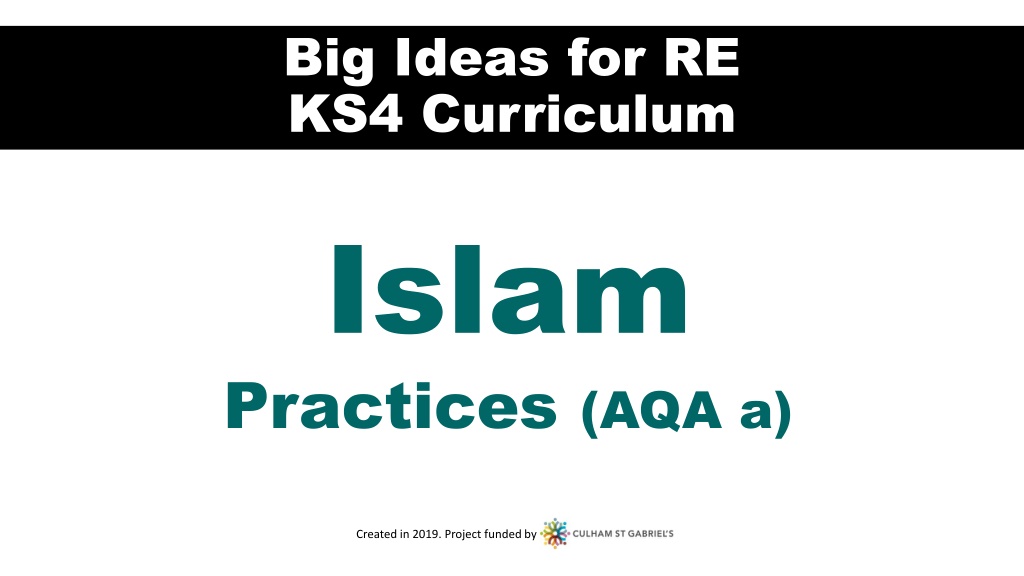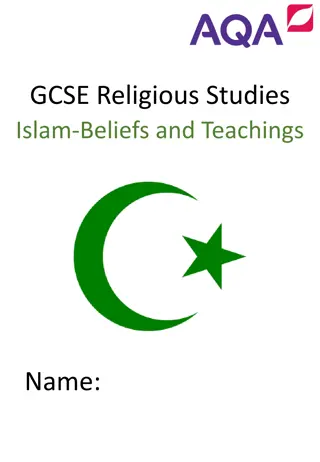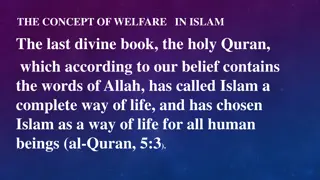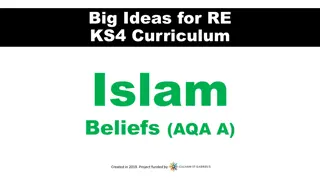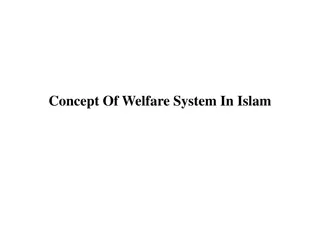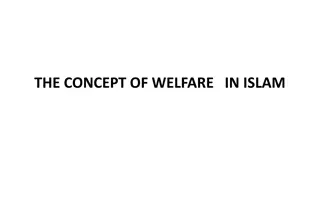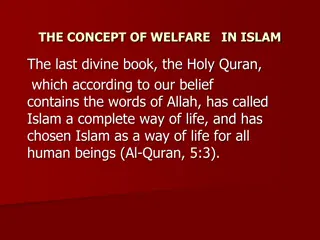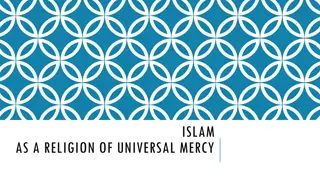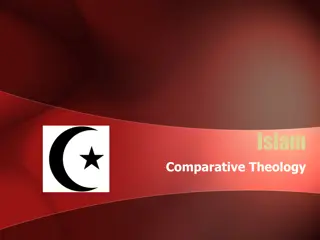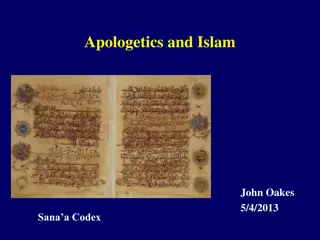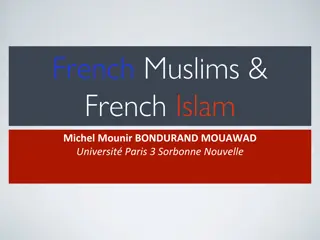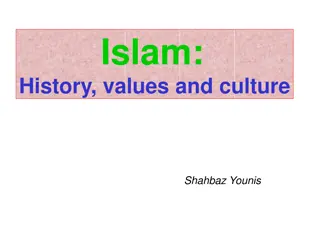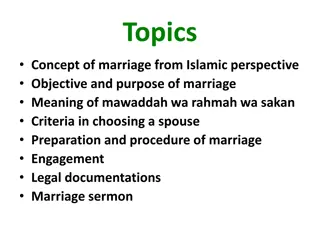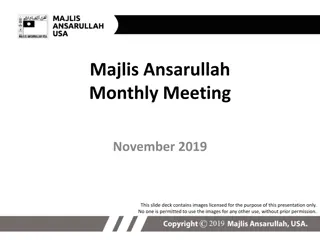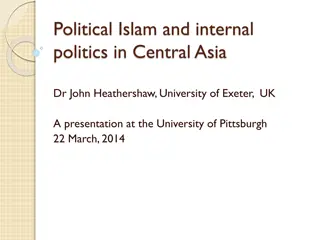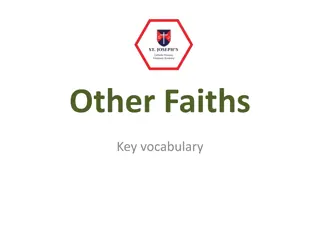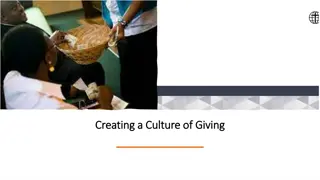Exploring Zakat, Khums, and Ethical Giving in Islam
Delve into the concepts of zakat and khums in Islam, examining the ethical value of obligatory giving and wealth purification. Compare these practices with modern humanitarian charity models, questioning the role of compulsory giving and its impact on community support. Explore the historical context of tribal ethics like muruwah and its relevance to modern Islamic principles.
Download Presentation

Please find below an Image/Link to download the presentation.
The content on the website is provided AS IS for your information and personal use only. It may not be sold, licensed, or shared on other websites without obtaining consent from the author. Download presentation by click this link. If you encounter any issues during the download, it is possible that the publisher has removed the file from their server.
E N D
Presentation Transcript
Big Ideas for RE KS4 Curriculum Islam Practices (AQA a) Created in 2019. Project funded by
7: 7: Is zakat a membership fee? Is zakat a membership fee? BIG IDEAS LEARNING ETHICS: ethical value of obligatory giving BELIEFS: zakat as purification ETHICS: wealth as something to be purified/ duty to be giving DIVERSITY: compare zakat and khums From the spec origins, how and why it is given, benefits of receipt, Khums in Shi a Islam. Zakah: role and significance including Learning outcomes: Explain the purpose and meaning of zakat Explain the purpose and meaning of khums Show one similarity or difference between zakat/ khums and a modern humanitarian charity Offer a supported view as to the value of compulsory giving Resources 7 Zakat khums
Lesson 7 Display images on the board denoting wealth, poverty and consumerism; such as victims of poverty, the excesses of the very rich and consumer items students desire. Discuss: does money mean happiness? Find out about the Giving Pledge: https://givingpledge.org/ , and Giving What we Can: www.givingwhatwecan.org. Discuss why these individuals want to give their wealth away? Can wealth somehow damage us? Recap old Arab tribal ethics of muruwah (from Islam beliefs paper, lesson 4, Tawhid, summarized on next slide). Can students suggest links between muruwah and any aspect of modern Islam they are aware of (including zakat)? Read 7 zakat and khums sheet. Discuss compulsory nature of both forms of charity. Is compulsory giving as ethically valuable as voluntary giving? Is compulsory giving a practical way of ensuring the community supports others? Compare to the Giving Pledge and GGWC: are these non-religious forms of zakat and khums? How do they differ, for example, what are zakat and khums for? In groups discuss how far zakat/ khums are membership fees to belong to Islam. Ask groups to create two supported arguments in response to the question. Listen to arguments and evidence. Create a class conclusion.
Muruwah The Meccan tribes, including Muhammad s tribe, the Quraysh, were losing their old tribal values and making a god of money. Through trade these nomadic tribespeople had settled and become rich. However Muhammad was extremely concerned that the tribal ethic of care and support was dying. He was convinced the tribes needed a new spiritual and ethical centre to their lives or their greed and selfishness would consume them. The various Arab tribes worshipped at the shrines of several gods, but did not have strong beliefs in the soul, divine judgment or an afterlife, or any organised religion. Instead a communal ethic called muruwah functioned almost as a religion. Muruwah required tribe members to show complete obedience to their chief, the sayyid, to protect the tribe with their life, avenge wrongs and support weaker and more vulnerable members. The sayyid shared all goods and wealth equally among all members. Muruwah allowed a profound sense of equality, generosity and hospitality. All wealth was to be shared which guarded against greed and selfishness. This worked for centuries in a nomadic lifestyle where morality rates were high, food and goods were scarce and everyone relied on each other. However as the inhabitants of Mecca grew in wealth muruwah no longer held the tribes together. There was spiritual and social restlessness. A new unifying spirit was required.
